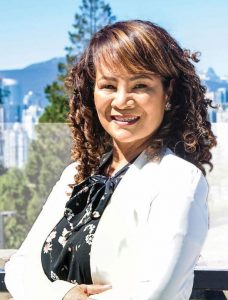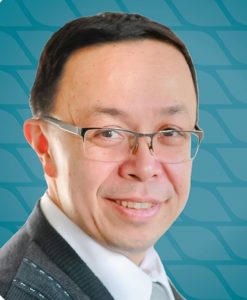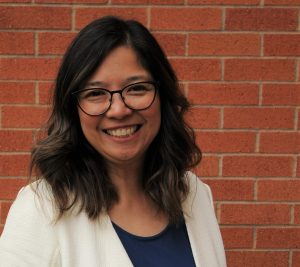3 Fil-Cans run for city councils
3 Fil-Cans run for city councils

LINA VARGAS
British Columbia
By Nestor Burgos
The Philippine Reporter
VANCOUVER — Three Filipino-Canadian community leaders aim to bring their advocacies to a wider and higher level by running for a seat in the city councils in three key cities in British Columbia in the general local elections on October 15.
Aside from pushing for more inclusiveness and diversity in policy-making, Lina Vargas, Maita Santiago and Ramon Bandong will prioritize affordable and secure housing, transparency, rising cost of living and other basic issues and concerns affecting residents.
Lina Vargas is running for a seat in the city council of Vancouver, the most populous in this westernmost province.
The community organizer is running as an independent candidate, relying on volunteers and networks of supporters and friends she has gained through years as a caregiver, hair stylist, social worker and gender rights advocate.
“(Running as an independent candidate) is the biggest challenge. We have to work hard,” she told The Philippine Reporter in a telephone interview.
“It’s about time to have someone represent underrepresented groups including Filipino Canadians” in the city council, she said.
While Filipino Canadians comprise the third or fourth largest visible minority group in British Columbia (BC), only a few have been elected to office.
These include Mable Elmore, who was elected Member of the Legislative Assembly (MLA) of BC in 2009, the first of Filipino heritage in the province.
In 2011, Edwin Empinado was also elected as municipal councillor of Kitimat district, the first Filipino Canadian to win a seat in a municipal council in BC.
Vargas, president of the Diversity and Inclusion Support Group of BC, said she organized the group in 2020 at the height of the COVID-19 pandemic when she saw the rise of “anti-Asian racism”.
She said her experience for many years working and dealing with the elderly and persons with disability have encouraged her to run for office.
“It’s giving back to God and the community,” the mother of three and native of Iriga City in Camarines Sur province in the Philippines said.
Among her priorities are improving healthcare and senior’s care,
creating more sustainable and affordable housing and supporting a more connected city through accessible public transit.

RAMON BANDONG
In Surrey, BC’s second most populous municipality, Ramon Bandong is also aiming to be the first Filipino Canadian to win a seat in the city council.
A church leader and a relationship manager in a financial security company, Bandong said he is offering himself for public service not only to Filipino Canadians but all residents.
His main advocacies as a candidate of the Surrey Forward party include openness and fairness in governance and affordable cost of living. He is also focusing on interracial respect, mental well-being, inclusion and dignity.
“It’s for my kids and grandchildren and for all residents,” the father of four from Quezon City in the Philippines said.
Bandong draws inspiration from witnessing and taking part in the 1986 “EDSA People Power” uprising that toppled the Marcos dictatorship in his native country in 1986 when he was just 15 years old.
It was “the power of one person united with other people,” he said.

MAITA SANTIAGO
Community leader and migrant rights advocate Maita Santiago also hopes to bring her advocacies to the city council of Burnaby, BC’s third most populous municipality.
The mother of two from Bulacan province in the Philippines is part of the eight-member slate of the Burnaby Citizens Association (BCA).
“I’m running for Burnaby City Council to build an inclusive and progressive city that puts the needs of Burnaby residents first. We need to take immediate action and respond to the housing and climate crises affecting our communities and environment,” Santiago said in a BCA media release.
Santiago who first came to Canada in 1977 is an immigration consultant and has been serving as constituency assistant to MLA Mable Elmore.
She served as secretary general of the Filipino international migrant group Migrante from 2002 to 2008.
Her years of working with community and non-government organizations and everyday folk also showed her the need for representation in government bodies especially municipal councils.
“For a long time, others have represented us. The councils are closest to the needs of the people. I have seen the big difference to Filipino Canadians and other racialized communities if there is representation,” she told The Philippine Reporter.
As a “progressive representative”, Santiago said her main focus is on more affordable and secure housing options, inclusiveness and the climate crisis.
British Columbia with a population of more than five million (2021) is the third most populous among Canada’s 10 provinces and three territories next only to Ontario and Quebec.
There are 145,030 Filipino Canadians in BC, the third biggest concentration next to Ontario and Alberta provinces, based on the 2016 census.
Comments (0)